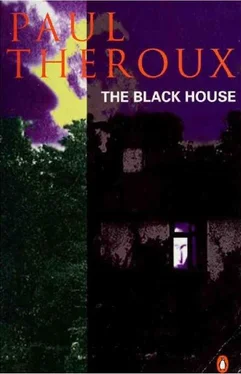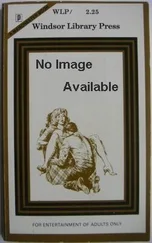Paul Theroux - The Black House
Здесь есть возможность читать онлайн «Paul Theroux - The Black House» весь текст электронной книги совершенно бесплатно (целиком полную версию без сокращений). В некоторых случаях можно слушать аудио, скачать через торрент в формате fb2 и присутствует краткое содержание. Год выпуска: 1996, Издательство: Penguin Books, Жанр: Современная проза, на английском языке. Описание произведения, (предисловие) а так же отзывы посетителей доступны на портале библиотеки ЛибКат.
- Название:The Black House
- Автор:
- Издательство:Penguin Books
- Жанр:
- Год:1996
- ISBN:нет данных
- Рейтинг книги:4 / 5. Голосов: 1
-
Избранное:Добавить в избранное
- Отзывы:
-
Ваша оценка:
- 80
- 1
- 2
- 3
- 4
- 5
The Black House: краткое содержание, описание и аннотация
Предлагаем к чтению аннотацию, описание, краткое содержание или предисловие (зависит от того, что написал сам автор книги «The Black House»). Если вы не нашли необходимую информацию о книге — напишите в комментариях, мы постараемся отыскать её.
The Black House — читать онлайн бесплатно полную книгу (весь текст) целиком
Ниже представлен текст книги, разбитый по страницам. Система сохранения места последней прочитанной страницы, позволяет с удобством читать онлайн бесплатно книгу «The Black House», без необходимости каждый раз заново искать на чём Вы остановились. Поставьте закладку, и сможете в любой момент перейти на страницу, на которой закончили чтение.
Интервал:
Закладка:
The confusion over the charwoman followed a few days later.
Useless in his study, brooding among his notes and weapons—he bitterly resented the theft of the dagger—Munday saw Emma’s housekeeping as a possible source of her unhappiness. She was sad, and busy, and her work reproached his inactivity. What she did was drudgery, and the cleaning and cooking left her exhausted. There was much more to do, strenuous chores like washing the spattered windows, beating the rugs, cleaning the oven. Munday did not want to do them himself, so he could not insist that Emma do them. They remained neglected. Claudia’s comment (“She’s doing housework”) had made Munday see Emma at the sink, heaving the coal scuttle, riddling the fire in the Rayburn; he watched her examining her reddened hands or pushing a wisp of hair out of her eyes; he noticed that she borrowed books from the Bridport library and returned them unread.
Once, looking through the back pages of The Times, Munday said, “There’s a job going in Algiers. Looks interesting. But the salary’s quoted in dinars ”
Emma sighed. “What about your book?”
“I could work on it in the mornings,” he said. “Do a little teaching in the afternoons.”
“You could do that here.” She was polishing the brass fire tongs; she didn’t look up.
He said, “I think we need someone around to help you out.”
“You don’t think I’m capable of doing the housework?”
“I hate to see you looking so tired at the end of the day,” he said. Emma went on polishing. He said, “I’ll bet there are lots of people in the village who’d be glad of a chance to earn a few pounds.”
The advertisement in the Bridport paper, a weekly, appeared that Friday. They had a dozen phone calls, most of them preceded by rapid pips, inquiring whether child-minding or cooking was involved. Emma explained the duties and invited all the callers for interviews. But only three women came. The first was old and inquisitive and said she had enjoyed Munday’s talk at the church hall. She was not so much interested in the job, she said, as eager to meet someone who’d seen a bit of the world. She warned Emma to be careful whom she hired for the job; there were so many layabouts in the village and they were so undependable. She told a story about one: Munday had heard it before, told by one of Alec’s cronies of a Bwamba herdsman he had employed. She said the only way to get things done was to do them yourself. She had learned that in Bromley, which was her home until her husband had retired. Before she left she sold Emma a raffle ticket for the Christmas Draw.
The next woman, Mrs. Branch, was young. She came with her sister-in-law who, confusingly, did most of the talking, asked all the questions and stated the fee; it became clear to Munday after some while that it was not she who was applying for the job, but the big worried girl with her, who sat twisting her handbag in her lap and looking anxiously around the kitchen. They left abruptly, and from the window Munday saw them walking down the road, deep in conversation.
It was dark when Mrs. Seaton came. Munday was at The Yew Tree, borrowing a hoe-shaped poker for cleaning the soot and dust from the Rayburn. Emma told him what had happened. She had been taken by surprise; there was no warning, no sound of a bus or car. The brass knocker sounded and Mrs. Seaton was at the door, shaking the wet from her umbrella. In spite of her mysterious arrival she was businesslike and looked capable. She accepted the cup of tea the others had refused and she said she had done similar work for the summer people. It was she who raised the subject of money. And she was candid: her husband was out of work, he was on the dole, they were having trouble making ends meet.
“We’ll be in touch with you,” Emma had said, and the woman left as she had come, stepping into the darkness and the sea-mist that glowed in a drifting nimbus around the ouside lamp.
“She sounds just the ticket,” said Munday, and the next day, which was sunny and cold, the kind of bright cloudless day that seemed to follow a dreary wet one, they walked the half mile into the village to find her and tell her she could begin work immediately.
Bowood House, like The Yew Tree, was not in the village of Four Ashes; with some other cottages —The Thistles, Rose Dene, Ladysmith, and Aleppo —it comprised a nameless hamlet on the village’s fringe. Four Ashes (one of the original trees still stood) had some local fame as a place of great charm, but the charm was all on the main road, Hogshill Street: in the market cross and the several antique shops with plates and prints in the windows; in the chemist’s, White’s, where in his first week Munday had bought a bottle of Friar’s Balsam for his cold; in Watkins’ Bakery, the two tea shops, the sweet shops, all severely old-fashioned; in Pines (“High-Class Groceries & Quality Vegetables”) which displayed in a glass case whole wheels of cheeses, and sold Stilton in stone jars, unusual spices, and freshly ground coffee; in Lloyd’s of Four Ashes, the men’s outfitter: and in the hotel, The White Hart, a former coaching inn, which retained the look of another century in its heavily rendered and whitewashed front, its archway and courtyard and mullioned windows. The church, St. Alban’s, on the crest of Hogshill Street, had a Norman font and some thirteenth-century stonework, and a vast yew tree in the cemetery which spread itself over the deeply pitted gravestones.
But Mrs. Seaton’s house was at the back of the village, in an unexpectedly crowded settlement of new and old terrace houses and cottages—the old ones leaning into the narrow street. There was a tiny pub, with a swinging sign, “The Eight Bells,” on one corner, and a low block of new council flats stood at the end of the street, a dead end, next to a coal yard.
“I had no idea the village was this big,” Emma said. She saw another street, packed with houses, running off Mrs. Seaton’s, and like Mrs. Seaton’s hidden from the main road.
“Funny little place,” said Munday. He knocked on the scarred door.
A boy of about ten opened the door. He wore an undershirt and pajama bottoms. He stared at Munday.
“Hello,” said Munday. “We’re looking for Mrs. Seaton.”
The boy shook his head. “Not here,” he said softly, and started to close the door.
“Hold on,” said Munday. “When will she be back?”
“She don’t live here.”
“Where does she live?”
Again the boy shook his head.
“What’s your name?” Munday asked.
“Peter Tuck.”
“Is your mother at home?”
The boy nodded, jerking his head forward.
“Tell her I’d like to have a word with her.”
The boy shut the door.
Munday whispered to Emma, “I think he’s a bit simple.”
The door opened. A middle-aged woman stood there with a baby on her hip. The woman’s fatigue looked like suspicion. The baby plucked at a button on her dress.
“Mrs. Tuck?”
“Yes.” She lifted the child and held it tightly to her shoulder, shielding herself with it.
“We’re looking for a Mrs. Seaton,” Munday said. “We were told she was at this address, and—”
“Over there,” said the woman. She pointed across the street at a house with a green door.
“Thanks very much,” said Munday. “We must have misheard the number.”
“Welcome,” said the woman, and shut the door. Munday was knocking on the green door when Emma said, “I didn’t mishear the number—she wrote it down. Look.” The penciled address was distinct on the scrap of paper.
An old lady answered the door. “What do you want?” she asked.
Munday told her.
“I’m Mrs. Seaton,” said the woman. She wore a frayed sweater—it was buttoned to her neck—and she carried a large wooden spoon.
Читать дальшеИнтервал:
Закладка:
Похожие книги на «The Black House»
Представляем Вашему вниманию похожие книги на «The Black House» списком для выбора. Мы отобрали схожую по названию и смыслу литературу в надежде предоставить читателям больше вариантов отыскать новые, интересные, ещё непрочитанные произведения.
Обсуждение, отзывы о книге «The Black House» и просто собственные мнения читателей. Оставьте ваши комментарии, напишите, что Вы думаете о произведении, его смысле или главных героях. Укажите что конкретно понравилось, а что нет, и почему Вы так считаете.












